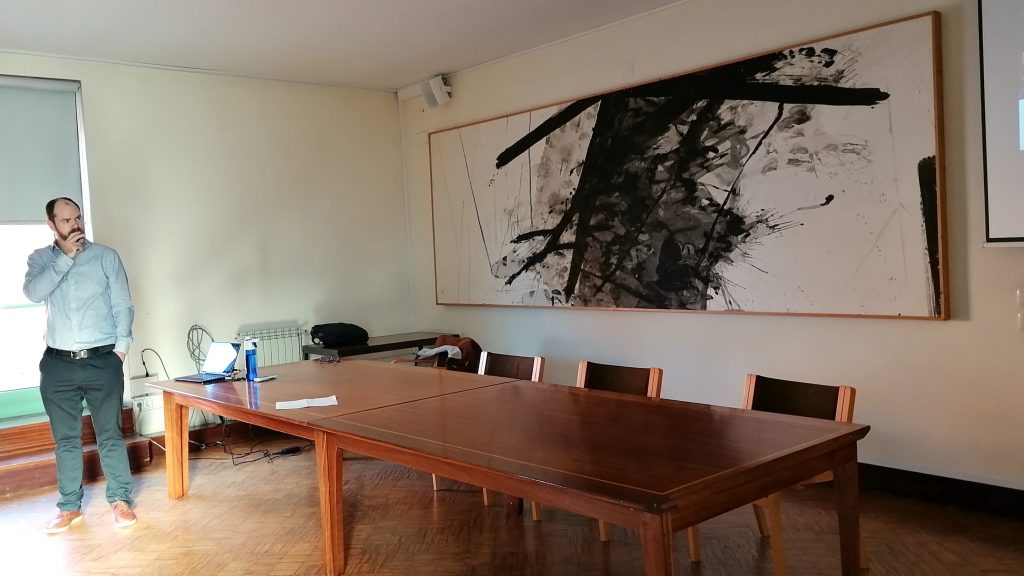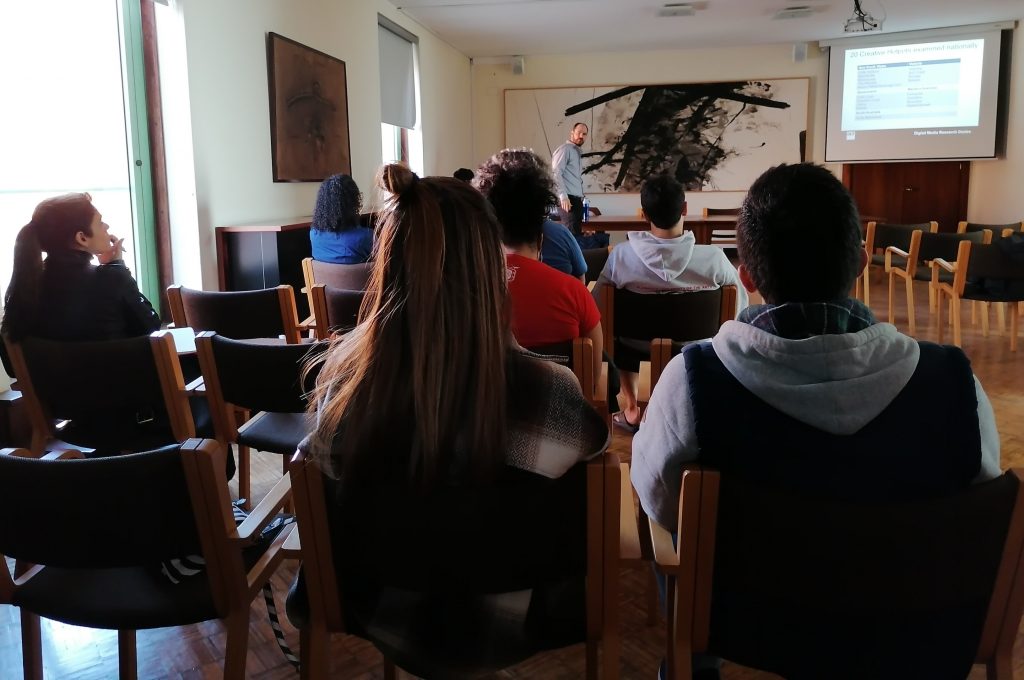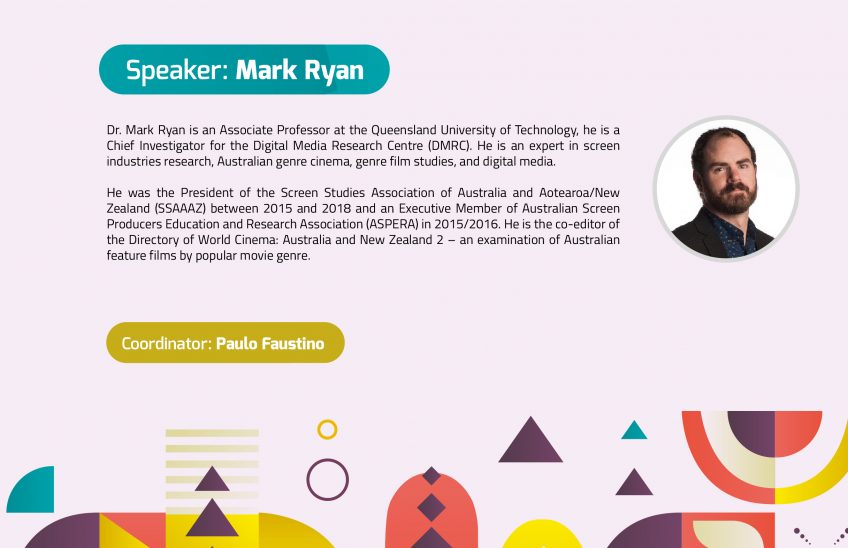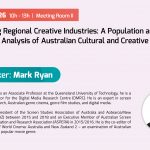Mark Ryan’s seminar on “Unearthing The ‘Total Value’ Of Web Series: The Economic, Industrial, Cultural and Social Value of Web Series” has been held at the Faculty of Arts of the University of Porto on the past October 25th and was moderated by Paulo Faustino. The seminar examined the conceptualization of web series as the new form of entertainment on online screening platforms and the project “Valuing Web Series: Economic, Industrial, Cultural and Social Value” was used as a key case study of the scale and value of web series.

Ryan explained how web series are usually short-form, episodic programming produced for online platforms and are characterized by original and diverse content produced by different creatives. They’re a post-broadcast model and consequently opposes the broadcast model we know as analogue TV. As a post-broadcast model, it offers a greater diversity of content, flexibility, mobility and choice from the consumer. Web series, as a form of digital entertainment, emerged originally in the United States in 1990s and were created specifically for web distribution.

Ryan talked how web series tend to have a niche audience, they’re regarded as a form to host alternative point of views that aren’t covered by mainstream media, like queer stories or gender issues. Creatives can display their own cultural flows and influences and reach viewers who continue to be underserved by traditional media. According to Ryan, the most popular genres are comedy, drama, animation and non-fiction comedy, which can variante between amateur and professional productions and therefore between aesthetics and quality.

Later, Ryan spoke about the new four-year project “Valuing Web Series: Economic, Industrial, Cultural and Social Value”, the first international comparative study of web series in Australia, Europe and Canada that will frame the theoretical frame of ‘total value’ to assess the role and viability of web series and will bring an international comparative analysis of web series production.In the long term the objectives are to track the careers of the creatives to know what career opportunities have been created by web series (industry value), to obtain information on how creatives approach financing on their projects (economic value) and to study the engagement between creatives and their audience (social value). Mark ended the seminar underlining the importance of web series to innovation on global screen ecology.




